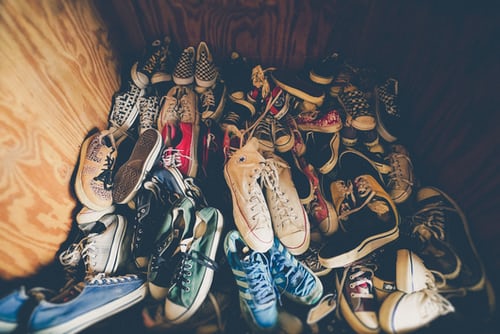We stared at the piles of donated shoes as we entered a local homeless shelter. The director had invited our youth group to help sort through the heaps of used footwear. We spent the morning searching for matches and lining them up in rows across the concrete floor. At the end of the day, we threw away more than half of the shoes because they were too damaged for others to use. Though the shelter couldn’t stop people from giving poor quality items, they refused to distribute shoes that were in bad condition.
The Israelites struggled with giving God their damaged goods too. When He spoke through the prophet Malachi, He rebuked the Israelites for sacrificing blind, lame, or diseased animals when they had strong animals to offer (Malachi 1:6–8). He announced His displeasure (v. 10), affirmed His worthiness, and reprimanded the Israelites for keeping the best for themselves (v. 14). But God also promised to send the Messiah, whose love and grace would transform their hearts and ignite their desire to bring offerings that would be pleasing to Him (3:1–4).
At times, it can be tempting to give God our leftovers. We praise Him and expect Him to give us His all, yet we offer Him our crumbs. When we consider all God has done, we can rejoice in celebrating His worthiness and giving Him our very best.
Why are you sometimes tempted to give God your leftovers or damaged goods? In what ways will you give Him your best today.
And that’s the memo.
By Xochitl Dixon and Our Daily Bread






